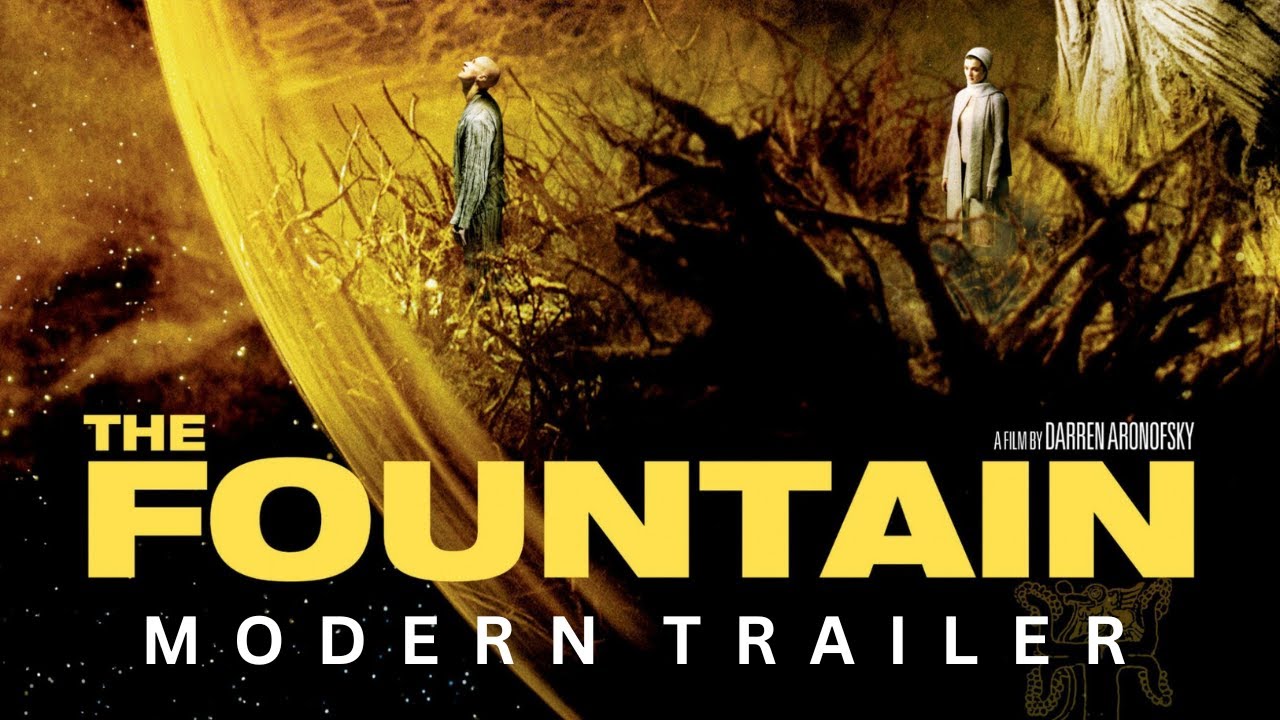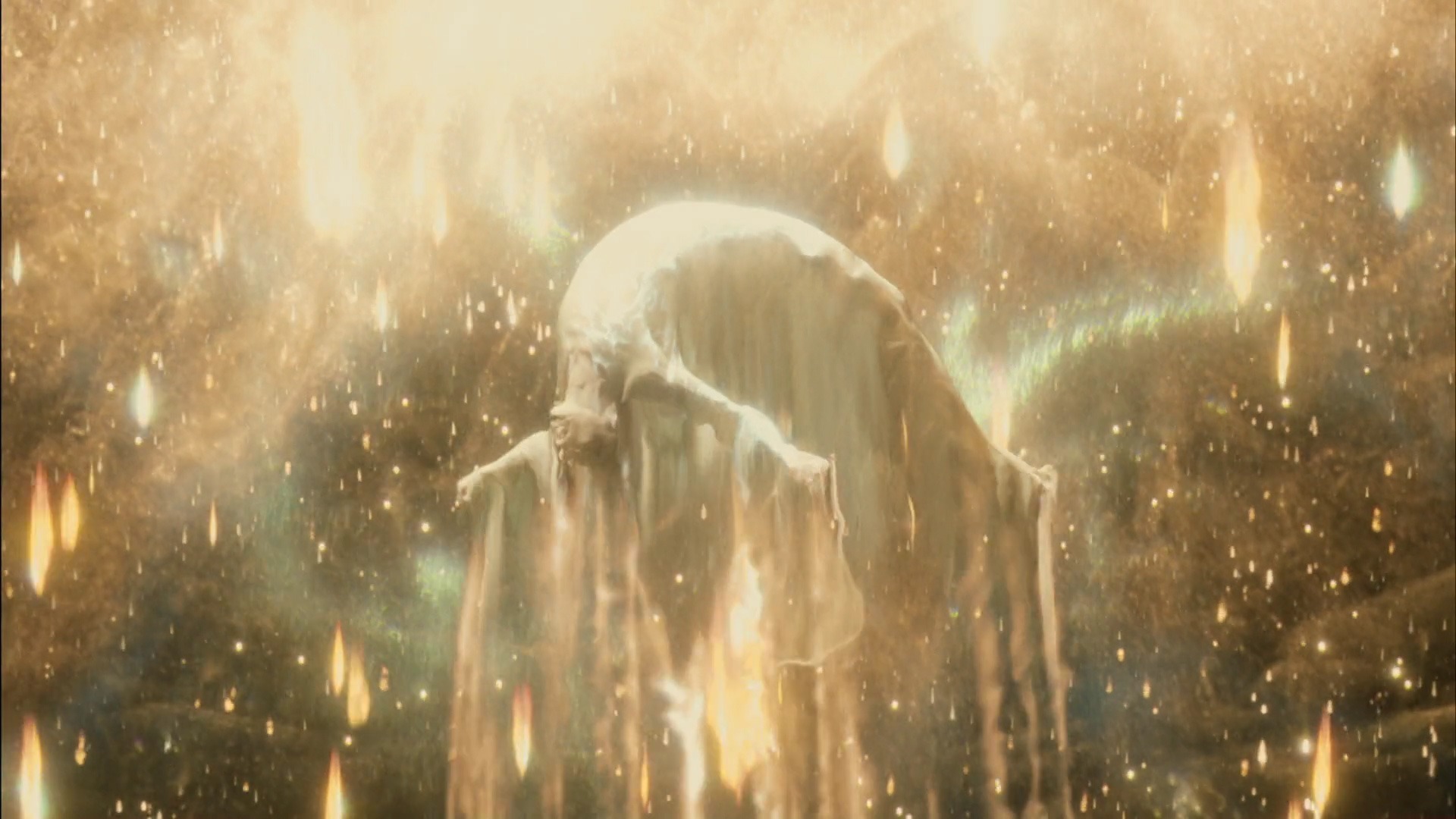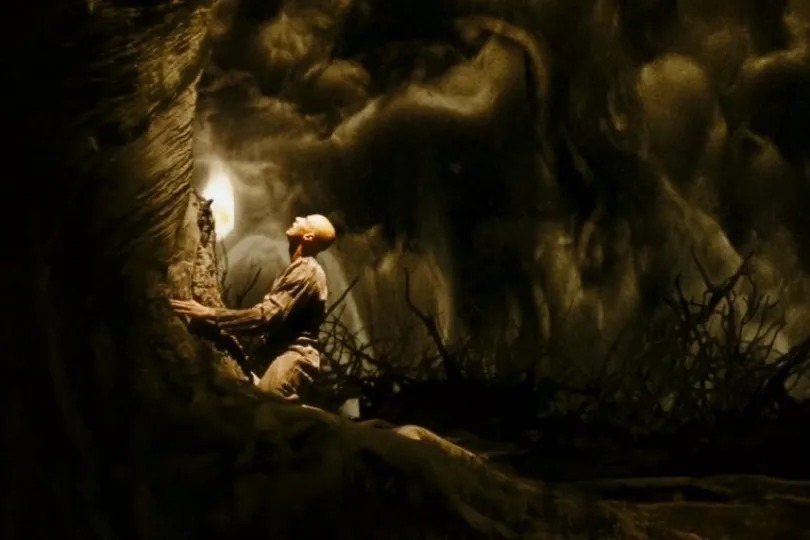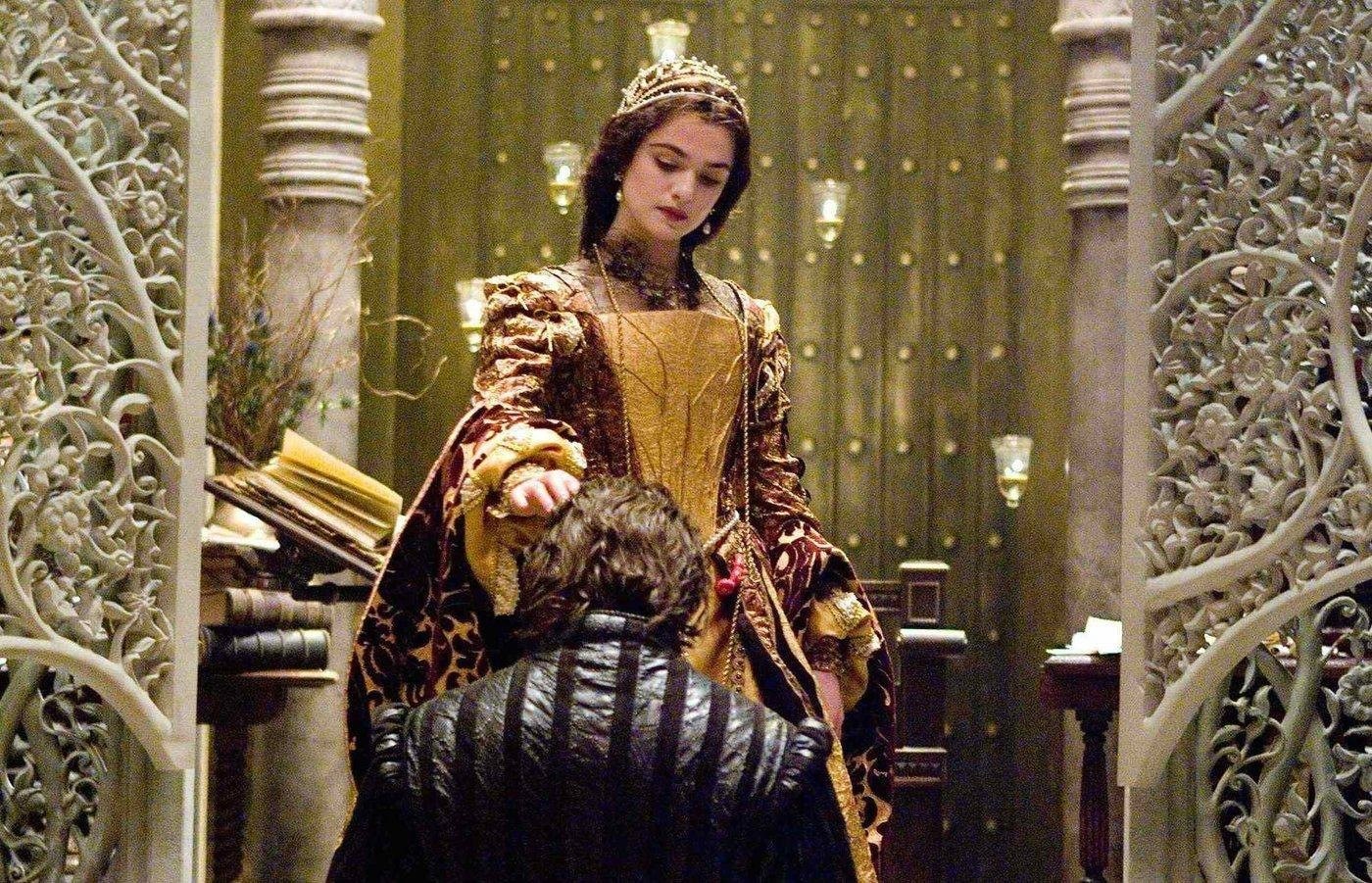The Fountain (2006)

The Fountain (2006) is an epic science fiction romantic drama directed by Darren Aronofsky, featuring Hugh Jackman and Rachel Weisz in leading roles. This ambitious film intertwines three different storylines spanning over a thousand years, exploring themes of love, death, and the search for eternal life. Aronofsky’s unique storytelling and visual style make the film a captivating and thought-provoking experience that leaves a lasting impression on its audience.
The film is divided into three distinct but interconnected narratives. The first takes place in the 16th century, where a Spanish conquistador, Tomas (played by Hugh Jackman), embarks on a mission to find the Tree of Life in the jungles of Central America to save his queen, Isabel (played by Rachel Weisz). In the second storyline, set in the present day, a scientist named Tommy Creo (also portrayed by Hugh Jackman) desperately tries to find a cure for his wife, Izzi (Rachel Weisz), who is terminally ill with cancer. The final narrative unfolds in the future, where a space traveler named Tom (Hugh Jackman) journeys through the cosmos in a spherical spaceship, searching for the Tree of Life to achieve immortality and reunite with his lost love.
One of the most striking aspects of The Fountain is its exploration of the human desire for immortality and the futile nature of trying to escape death. Throughout the film, the characters are driven by the hope that they can defy the inevitability of death, whether through scientific means or mystical pursuits. However, as the story unfolds, it becomes clear that accepting mortality and embracing the transient nature of life is essential for true peace and understanding. The film suggests that the pursuit of eternal life can lead to obsession and despair, ultimately emphasizing the beauty and significance of life’s fleeting moments.
The performances of Hugh Jackman and Rachel Weisz are central to the film’s emotional impact. Jackman portrays three distinct versions of his character across the three storylines, each dealing with loss and the fear of death in different ways. Weisz, in contrast, plays a character who, in the face of her terminal illness, accepts death with grace and a sense of purpose. Their performances are heartfelt and nuanced, giving depth to the film’s themes of love, sacrifice, and the human condition.

Visually, The Fountain is a stunning work of art. Aronofsky’s direction is complemented by Matthew Libatique’s cinematography, which creates an otherworldly and dreamlike atmosphere. The film’s use of color, symbolism, and striking imagery enhances its thematic depth and conveys complex ideas about life, death, and rebirth. The Tree of Life, which appears in various forms throughout the film, serves as a powerful symbol of both the potential for immortality and the need for spiritual growth and acceptance. The visual design of the future scenes, with their vast and surreal landscapes, evokes a sense of cosmic wonder and existential exploration.

The film’s score, composed by Clint Mansell, also plays a pivotal role in conveying its emotional and philosophical themes. The haunting and ethereal music complements the film’s otherworldly visuals and adds to its dreamlike quality. Mansell’s score amplifies the film’s emotional resonance, especially during the more poignant moments, where the music helps to elevate the characters’ struggles with love, loss, and the passage of time.

In conclusion, The Fountain (2006) is a visually stunning and emotionally profound film that tackles timeless themes of love, death, and the quest for immortality. Directed by Darren Aronofsky, the film offers a unique and experimental narrative that spans across different time periods and realities. With its outstanding performances, striking visuals, and haunting music, The Fountain is a thought-provoking meditation on the human experience and the inevitable cycle of life and death. It serves as a reminder that while immortality may be unattainable, the love we share and the lives we lead are what give our existence meaning.











